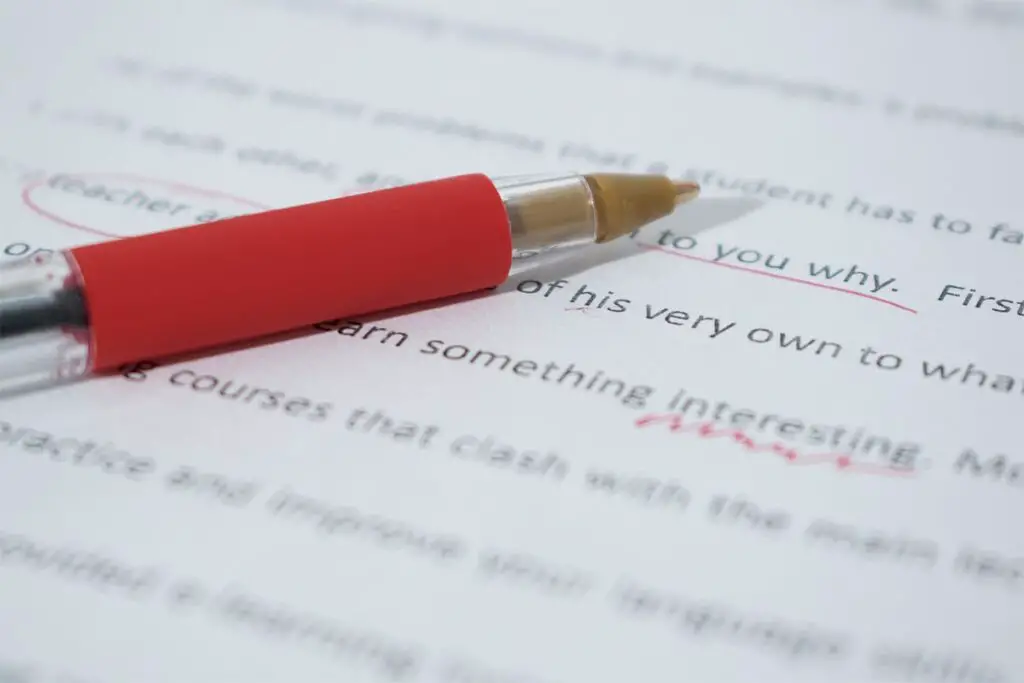The English language is no exception to the fact that there are some words or expressions that get mixed up by a lot of people. That’s why I thought it would be useful to make a list of the 10 most common mistakes in English. This way, you can avoid them and greatly improve your English proficiency.
The most common mistakes usually have to do with similar sounding words or words that are written in almost the same way. If this is the case, you need to look at the context to know which word is meant.
To or too
This is definitely one of the most common mistakes in English. Some people do not know the difference between ‘to’ and ‘too’ so they use them in the wrong context. These words have a different meaning so they cannot be mixed up.
| Word | Meaning | Example |
|---|---|---|
| to | to + infinitive, when you are talking about a direction | To run. I always walk to the swimming pool. |
| too | also, or when something is too heavy, too much, too big, … | I like her too. It’s just too much. |
‘To‘ is used in combination with an infinitive or when you want to say where you’re going or which direction someone is going.
‘Too‘ is used when you mean ‘also’ or when something is too big, too much, too little, …
Than or then
These words sound similar but have a completely different meaning. It’s important that you know the difference because it’s weird if you use one of these in the wrong context.
| Word | Meaning | Example |
|---|---|---|
| than | in a comparison | I am taller than my brother. |
| then | when you are talking about time | Work comes first, then you can relax. |

Click here for more information and exercises.
It’s or its
This is another one of the most common mistakes in English. You cannot hear the difference between these words so you need to look at the context to know which one is meant.
There is a clear difference in meaning and it’s important that you know this difference if you want to improve your English language skills.
| Word | Meaning | Example |
|---|---|---|
| it’s | it is | It’s Monday today. |
| its | when you are talking about possession | Having some connections has its benefits. |
There, their or they’re
Another of the most common mistakes in English is the difference between there, their and they’re. They almost sound the same, which makes it extra difficult to hear and know the difference.
| Word | Meaning | Example |
|---|---|---|
| there | when you are referring to a place to talk about things in general (there is) | Look at that tree over there. There is no plan B. |
| their | possession | It is their book. |
| they’re | they are (from the verb to be) | They’re late. |
For more information and exercises, click here.
Your or you’re
Just like the other words on this list, these two similar words have a completely different meaning. One way of solving the issue of mixing up these words is by using the full form of ‘you’re’, which is ‘you are’. If you do this, the difference becomes obvious.
| Word | Meaning | Example |
|---|---|---|
| your | when you are talking about possession | Give me your phone! |
| you’re | you are (from the verb to be) | You’re the best friend ever. |
Life or live
It’s very common for life and live to be used in the wrong context. These words are pronounced in almost the same way and look similar as well. The real meaning becomes clear when you look at the context in which these words are used.
| Word | Meaning | Example |
|---|---|---|
| life | the noun ‘life’ | I am living the best life possible. |
| live | the verb (to live) not recorded alive, not dead | I live like a king. I am watching live news right now. That’s a live animal over there. |
Click here for more information and exercises.
I as a capital letter
This is another example of a common mistake that appears very frequently and in all situations. The personal pronoun ‘I’ is used a lot and many people write it as ‘i’ when it appears in the middle of a sentence. This is not correct because this personal pronoun is always written as a capital letter, even when it’s in the middle of a sentence.
| I run a marathon. |
| Do I buy a car? |
| I don’t drink beer. |

No, to know or now
The eighth common mistake on this list is another one that can be difficult to notice in a fluent conversation. These words sound similar but are used in a completely different context. That’s why you really need to pay attention to the context and situation in which they are used.
| Word | Meaning | Example |
|---|---|---|
| no | the opposite of yes | Do you have the key? No, I don’t. |
| to know | the verb ‘to know’ | I know the answer. |
| now | at this moment | I am home now. |
Ful or full
This common mistake is slightly different from the other ones on this list because the difference between these words is a bit more complicated.
Ful is only used when it appears at the end of a word, so not as a word on its own. Ful with one <l> does not exist as a word on its own so does not really have a meaning. It needs another word to get a real meaning. Full ending in <ll> is a separate word that can be used on its own.
| Word | Meaning | Example |
|---|---|---|
| ful | no real meaning on its own | meaningful, tasteful, hopeful, powerful |
| full | the opposite of empty | My mug is full of tea. |
Which, witch or with
The final mistake on this list of most common mistakes has to do with the similar-sounding words ‘which’, ‘witch’ and ‘with’. The first two words look and soundnvery similar, the third not so much. Still, a lot of people don’t know the difference so they use them in the wrong context.
| Word | Meaning | Example |
|---|---|---|
| which | when you are referring to something or someone from a definite set | Which car is yours? |
| witch | a female wizard | She’s a witch. |
| with | to be accompanied by something or someone | I love French fries with steak. |

